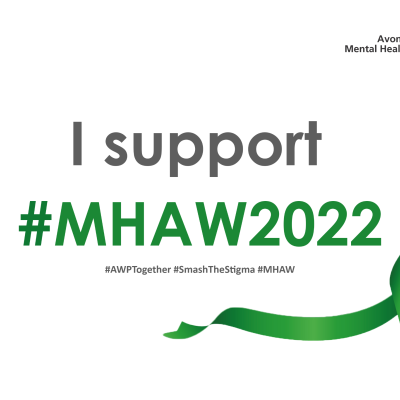Publish date: 14 April 2022
Difficulty sleeping, being irritable, feeling overwhelmed and avoiding things or people you are having problems with – just some of the signs you could be experiencing stress.
According to the Mental Health Foundation, 74% of UK adults have felt so stressed at some point over the last 12 months they have felt overwhelmed and unable to cope.
April is Stress Awareness Month and Avon and Wiltshire Mental Health Partnership (AWP) NHS Trust is encouraging people to find out more about how stress can impact on their health and wellbeing and how they can take steps to manage it.
Claire Williamson, Head of Psychological Therapies, for Avon and Wiltshire Mental Health Partnership (AWP) NHS Trust, said: “At times life can be challenging, with lots of things to juggle and manage all at the same time. When this happens and things become overwhelming, we can experience stress. If our stresses are not addressed or continue for a long period of time, this can affect our mental health and wellbeing. This can also lead to the need to take time out from work or school and even contribute to physical health problems like cardiovascular disease or an increase in blood pressure.
“That’s why it’s really important to recognise the signs of stress and the impact it is having on you. Signs you could be experiencing stress include being irritable, feeling overwhelmed, lacking self-confidence and having difficulty sleeping. If this sounds like you, it’s time to seek help and support.”
Experiencing a lot of stress over a long period of time can also lead to a feeling of physical, mental and emotional exhaustion, this can sometimes also be called burnout.
Claire continued: “It’s never easy to try and deal with things that are overwhelming us, but there are some simple things you can do to try and help. These include dividing large tasks into more manageable chunks, focusing on things you are thankful for, challenging unhelpful thoughts and sharing how you are feeling with someone. They may not solve the problem, but they may make it feel more manageable.”
Top tips for dealing with stress
• Talk to friends and family about your feelings - stress may alter the way you interact with people, so it is important to discuss how you feel with those around you. Talking about how you are feeling and the causes of those feelings will give others the opportunity to make allowances for you and provide you with emotional and practical support.
• Look after yourself - skipping meals and eating foods with a high sugar content can cause sugar and hormone levels to change drastically, affecting how you feel both mentally and physically.
• Get active – stress and anxiety can produce toxins in the body, which exercise can help to reduce.
• Reduce caffeine and alcohol intake – it’s important to get a good night’s sleep and caffeine and alcohol can affect your sleep patterns, so try not to rely on them as ways of coping with stress and anxiety.
A short video of AWP Psychologist, Gemma Bentham, talking about how to manage stress is available to view here:
For more information on stress and guidance on how to manage the signs and symptoms, visit the Every Mind Matters website https://www.nhs.uk/every-mind-matters/mental-health-issues/stress/
You can also find AWP on Facebook aand follow us on Twitter - @AWPNHS - where we are sharing tips and useful resources on managing stress.
So, if you can identify with this and think you need to manage the stress in your life, take action this Stress Awareness Month.








